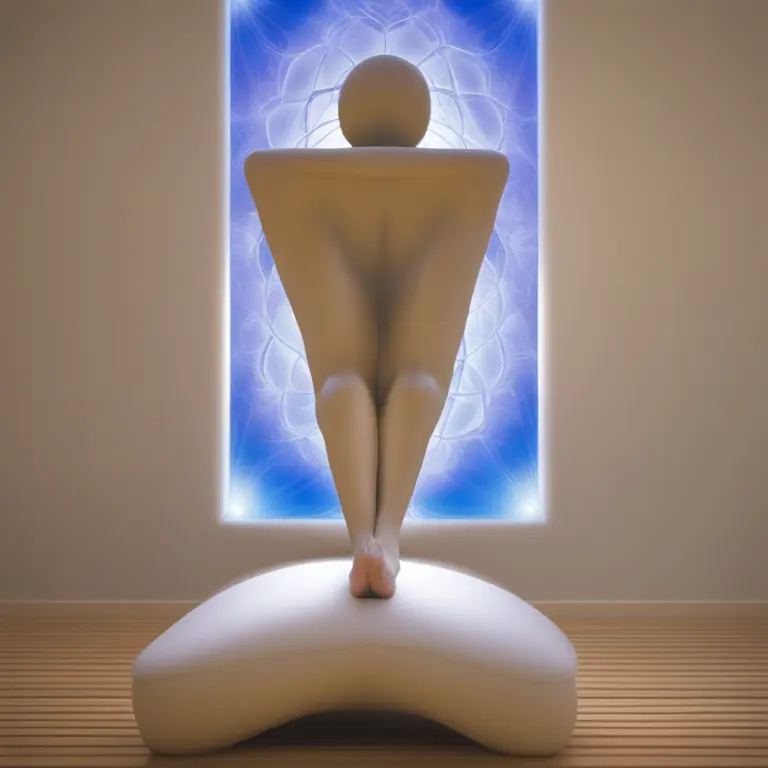
Reverie Aid: Serene Meditation for Better Sleep
Discover serene meditation techniques tailored to improve your sleep, encouraging deep restfulness and a tranquil mind.
article by Hina Kurosawa
Introduction to Sleep Meditation
Amidst the hustle and bustle of modern life, the quest for a peaceful night's sleep has become increasingly valued. Sleep meditation stands as a beacon of hope for those struggling to switch off their minds at night. By guiding the mind and body towards relaxation, these practices work to enhance sleep quality, making them integral to a restful night. This article delves into accessible meditation techniques designed to pave the way for a tranquil slumber, free from the day's worries and stress.

Body Scan Meditation
Body Scan Meditation is a foundational technique that promotes relaxation by bringing awareness to each part of the body sequentially. Starting from the toes and moving upwards, you gently notice sensations without judgment, which often culminates in a state of deep relaxation conducive to sleep. This practice not only soothes a busy mind but also helps in releasing physical tension—a common obstacle to restorative rest. Integrating this technique into your nightly routine can transform your approach to unwinding after a long day.

Breath-Focused Techniques
Controlled breathing practices, like the 4-7-8 method, have gained traction for their simplicity and effectiveness. In this technique, you inhale for four seconds, hold your breath for seven seconds, and exhale slowly over eight seconds. This rhythmic pattern serves as an anchor, drawing your attention away from anxiety-inducing thoughts. The 4-7-8 technique not only lowers stress levels but also regulates the autonomic nervous system, preparing your body for a restful night's sleep.

Guided Visualization
Guided Visualization encourages sleep by weaving calming narratives that escort the mind to a place of serenity. Through a pre-recorded voice or self-guided imagery, you envision a peaceful landscape or scenario that can lead to a sense of ease and comfort. The mental focus on these calming scenes distracts from daily stressors and shifts the mind away from wakefulness. Adopting visualization before bed can significantly reduce the time it takes to fall asleep, as it sets the stage for a peaceful journey into sleep.

Mindfulness and Letting Go
Mindfulness meditation teaches the art of living in the present moment. By focusing your awareness on the here and now, rather than on past or future events, it has a profound impact on sleep. Techniques often involve observing thoughts and feelings without attachment, allowing them to pass like clouds in the sky. This detachment from concerns or anxieties weakens their hold, enabling the mind to shift away from active thinking to a state ready for sleep.
Yoga Nidra for Deep Rest
Often referred to as yogic sleep, Yoga Nidra is a form of guided meditation that promotes deep relaxation while maintaining consciousness. It's especially beneficial for those who grapple with insomnia or stress-related sleep issues. Lying down in a comfortable position, practitioners are led through a systematic meditation that relaxes every level of their being. The practice of Yoga Nidra supports the natural descent into deep, restful sleep, offering physical, mental, and emotional relaxation.
Cultivating Consistency
Establishing a consistent meditation routine is key to experiencing prolonged benefits. By setting aside a specific time each night for practice, our minds begin to associate this period with winding down and thus respond more effectively. Whether it's through an app, a class, or a personal habit, consistency in meditation is tantamount to success in achieving better sleep. Over time, this practice can significantly alter sleep patterns, leading to a more peaceful night's rest.
Embracing Technology for Meditation
In the ever-evolving world of technology, applications and devices have surfaced as tools to aid meditation practices. From apps that offer sleep meditation tracks to wearables that monitor relaxation levels, technology can be a boon for those seeking structured support. In 2024 and beyond, we're likely to see the integration of artificial intelligence in these tools amplifying personalization in meditative practice and, by extension, improving our sleep hygiene and overall well-being.
Published: 2/12/2024
Modified: 2/12/2024
More predictions
Come back here soon to learn more about yourself and your future


Variety of Meditation Practices for Inner Peace
Discover a curated list of meditation techniques to cultivate mindfulness and tranquility in your daily life.


The Spectrum of Meditation Practices for Inner Harmony
Delve into the various meditation techniques designed to foster mindfulness, tranquility, and deeper self-awareness.


Various Meditation Practices for Inner Peace
Discover different meditation techniques designed to promote tranquility, mental clarity, and spiritual growth in our comprehensive guide.